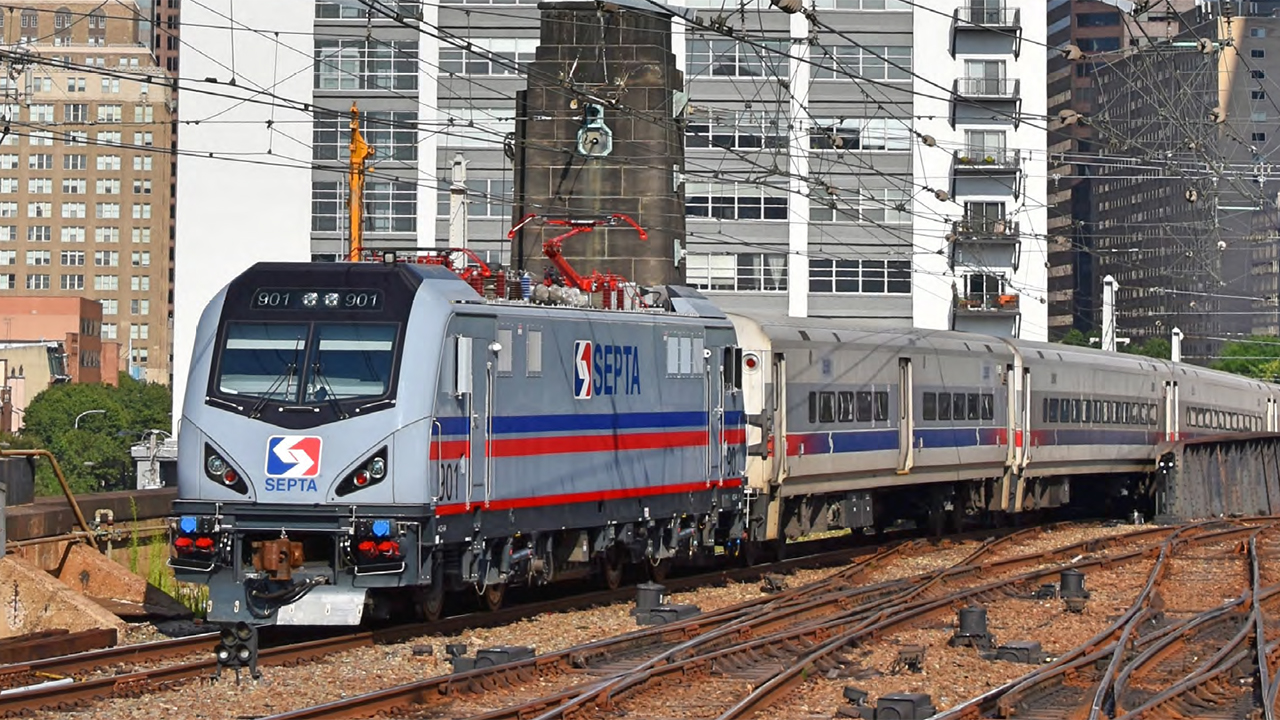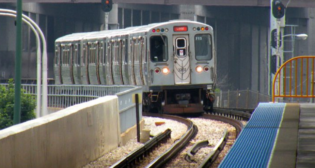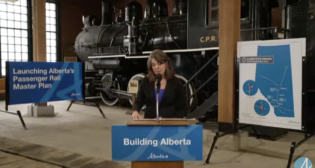
Report: BLET, SMART-TD Authorize Strike Votes on SEPTA
Written by Carolina Worrell, Senior Editor
The national presidents of the Brotherhood of Locomotive Engineers and Trainmen (BLET) and the International Association of Sheet Metal, Air, Rail and Transportation Workers, Transportation Division (SMART-TD), which represents the conductors, have authorized strike votes on the Southeastern Philadelphia Transportation Authority (SEPTA) “after months of mediated talks [with the agency] failed to produce progress toward agreements,” according to a report by The Philadelphia Inquirer.
According to the report, engineers and conductors “have not received raises in about four years, and their hourly wages already are the lowest among commuter rail systems nationally,” union officials say.
“Engineers and conductors have been leaving to take better-paying jobs with other rail systems in the region—BLET National President Eddie Hall said there are 159 locomotive engineers on staff, compared to an authorized strength of 230,” according to the report.
“We continue to try to get SEPTA to negotiate, but they’re not really working with us at all,” Hall said in an interview. “I expect our membership will be behind this.”
According to the report, the unions said they would jointly announce the results of the balloting on Nov. 20, in part because “BLET’s bylaws require voting to be conducted by mail.”
According to The Philadelphia Inquirer report, the announcement of the strike votes came as negotiators for SEPTA and its largest bargaining unit, Transport Workers (TWU) Local 234, “hunkered down at a Center City hotel for marathon talks ahead of the Oct. 31 expiration of the two-year contract covering bus, trolley, and transit train operators, mechanics, and cashiers.”
“I think the momentum will shift since we’re here,” said TWU Local 234 President Brian Pollitt, speaking outside the Wyndham Philadelphia Historic District on Monday. He said the union’s negotiators intend to “lock ourselves” there for the week, meeting 24 hours a day if necessary, according to the report.
According to The Philadelphia Inquirer report, Don Hill, the General Chairman of Division 71 of the BLET, which represents Regional Rail engineers, was there lending support to Pollitt and the TWU as the engineers and conductors were announcing their strike votes.
“We started collaborating a lot more [with the other SEPTA unions] over the last 10 years,” Hill said in an interview. “We all realized it’s better to work together than be picked apart.”
“We have proposed several packages to settle this round of bargaining, and SEPTA has not moved one inch from their initial position,” said SMART-TD General Chairperson Ray Boyer in a release. “Even through mediation, SEPTA refuses to bargain by completely ignoring inflation and labor’s part in keeping the service fluid during the pandemic. CEO Leslie Richards was provided with a four-year contract in May 2023 that included a $75,000 wage increase, bringing her total compensation to $425,000. SEPTA’s board approved her raise after a comprehensive review of compensation for leaders in comparable transit systems. In other words, the board applied a prevailing-wage concept to determine her compensation. SEPTA is completely ignoring the same prevailing-wage concept when it comes to labor, which is hypocrisy. It’s a clear picture of management’s value of its labor force, and SMART-TD is not going to tolerate our voices being ignored any longer. A strike vote must be presented to the members to prepare for further action.”
“Our General Chairperson for the SEPTA property, Ray Boyer, served Section 6 Notices on SEPTA well over a year ago,” said SMART-TD President Jeremy Ferguson in the release. “SEPTA management knows full well that SMART-TD’s members are the backbone of the greater Philadelphia area. Our members operate heavy rail, buses, light rail, and trolleys that keep this city moving. They do so in all kinds of weather and through the pandemic, all while assault rates on transit workers are going through the roof. At minimum, SEPTA management should show labor the respect it deserves and negotiate in good faith. Instead, SEPTA refuses to adjust its initial proposals or acknowledge the various packages proposed by SMART-TD. With that, I have authorized a strike vote for our SEPTA passenger service members.”
According to The Philadelphia Inquirer report, “contracts have ended for both BLET and SMART-TD, but the federal Railway Labor Act requires railroad employees to keep working on an automatic contract extension and begin talks with a mediator on a new one. Binding arbitration and a cooling-off period follow.”
If the sides still can’t agree, The Philadelphia Inquirer reports, “the dispute can ultimately be decided by an emergency board appointed by President Joe Biden—as happened with a dispute between freight railroads and unions last year.”
According to The Philadelphia Inquirer report, both unions say that SEPTA has “benefited by relying on Presidential Emergency Boards (PEBs) and convincing them not to require the agency to grant wage increases during the bargaining period and to eliminate retroactive wages.”
As a result, passenger rail wages at SEPTA “have deteriorated,” said SMART-TD Vice President Jamie Modesitt.
“This is significant because it has permitted SEPTA to avoid labor wage increases for almost two years during certain bargaining cycles,” Modesitt said in a release. “A 0% wage increase, logically, does not compound, and that has caused SEPTA wages over the past years to drop below the prevailing wage for the passenger rail industry. It is obvious to me that SEPTA hopes to repeat its attack on wages because they have made it clear to us that the PEB is their goal.”



